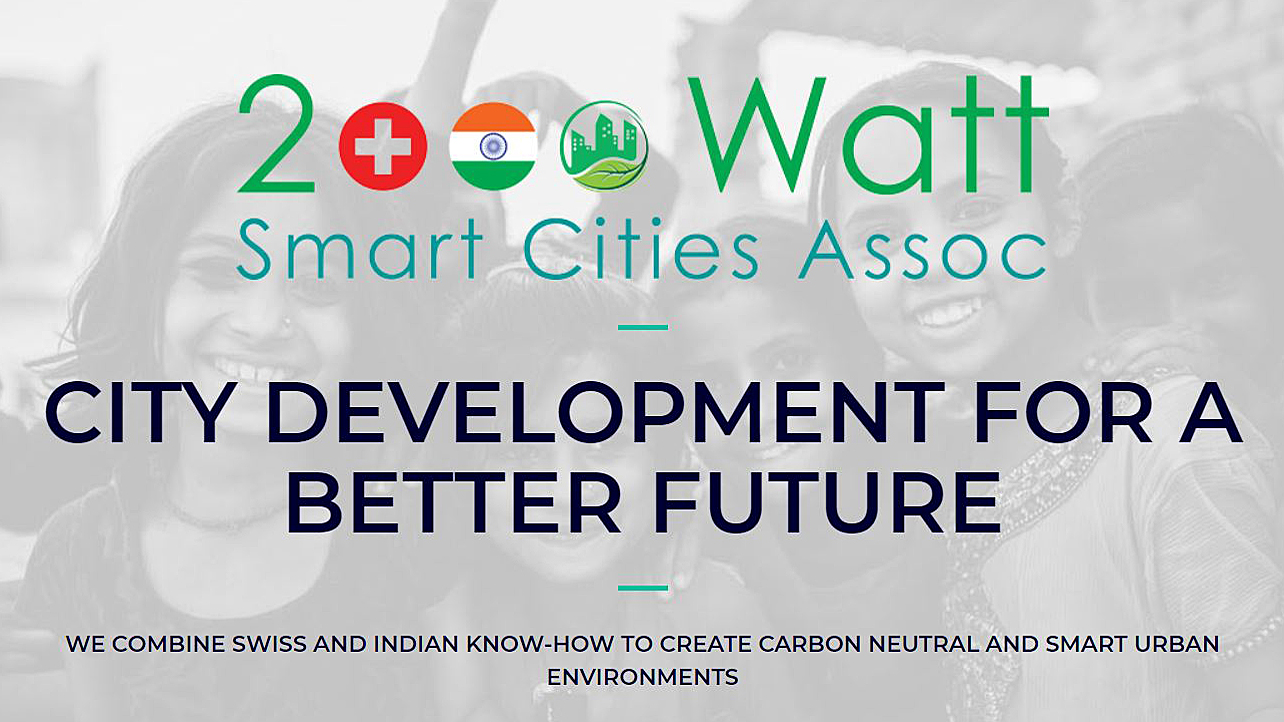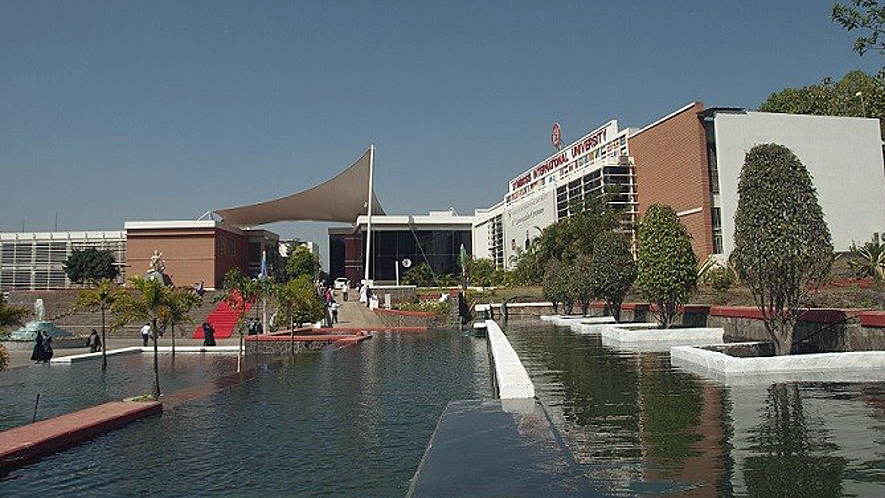

Swiss Partners
2000 Watt Smart Cities Association (2000WSCA), Zürich
www.2000wsc.org
Andreas Binkert
Project Type:
Technology:
Country:
Project Status:
Project Start:
End of Project:
Contract:
Documentation
Swiss Contribution
The 2000 Watt Smart Cities Association has several years of proven experience in spatial planning, urban development and site-development, as well as the implementation of energy efficiency, renewable energies and climate-friendly applications in large construction projects.
Description
The Symbiosis International University in Pune oversees a campus with eight faculties and over 20,000 students. The University is already pursuing sustainability goals in the areas of food services, solar energy and mobility, with plans to expand the existing facilities. An overall energy concept for the university’s sites remains open.
Based on the successful Swiss approach for the 2000W sites, the criteria catalogue for the 2000W sites’ certification will be adapted to the Indian context as a first step. In a second step, the entire process will be implemented for the Symbiosis University campus; from recording the status quo to analyses, the development of a master plan for energy, building design, construction methods, mobility, food, waste management, etc. The project’s main goal is the first successful certification of an area as a 2000W Smart City in India, followed by the establishment and multiplication of new 2000 Watt Smart Townships in Pune and throughout India.
Results
In 2022, the campus of Symbiosis International University was audited by a Swiss auditor. Symbiosis University was awarded the first 2000-watt certificate in India. The official certification ceremony took place in June 2023.
Impacts
The strategy for further development was defined for the entire campus. In the final stage of development (planned by 2041), a total of about 7.4 MW of photovoltaic-power could be installed, which would enable the campus to cover 94% of the expected electricity demand. According to current calculations, this would save almost 9 tonnes of CO2 emissions annually. Currently, 12% of the electricity demand is already covered by the campus’ own PV systems. In addition to the results directly on site on the campus, other interested parties have already contacted us regarding the entire 2000-watt topic. Various memorandums of understanding have already been signed with the Green Rating for Integrated Habitat Assessment Council (GRIHA), National Institute of Urban Affairs (NIUA), Maharashtra Government and the Pune Metropolitan Region Development Authority (PMRDA), among others.